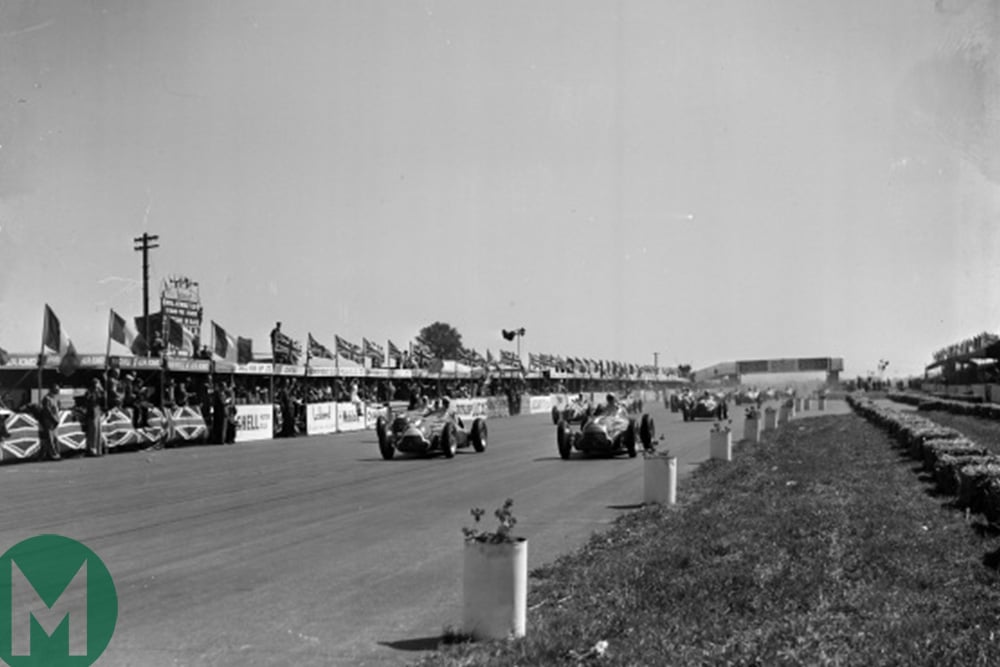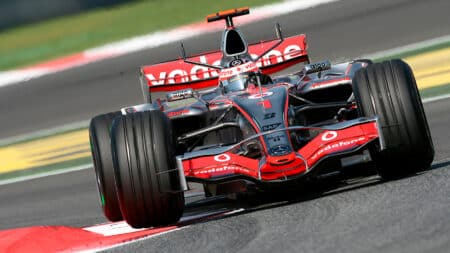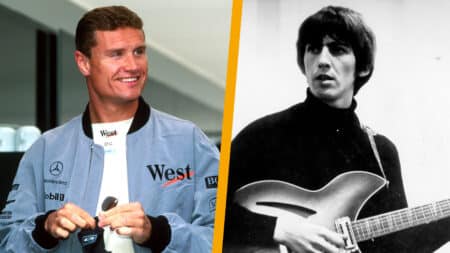
MPH: To the man trying to fill Christian Horner's shoes: good luck!
Laurent Mekies arrives as Red Bull F1 team principal with a series of immediate challenges to solve and long-term issues to tackle. He'll either sink or swim, says Mark Hughes
Silverstone broke the Bernie Ecclestone model of escalating circuit charges. Now F1 has to replace that revenue — or cut costs, writes Mark Hughes

Photo: Motorsport Images
Great news for British F1 fans that Silverstone has agreed terms with F1 to host the British Grand Prix for the next five years.
The jeopardy of the event’s future beyond 2019 for the last couple of years arose when the circuit’s management became the first to pop – the first to say the terms imposed in the boom times by Bernie Ecclestone were no longer sustainable. It therefore exercised its right to activate a break clause in the original contract which ran until 2026. For any partnership to work, both sides have to get something from it, otherwise it’s simply a distorted, manipulative pairing with one party unhealthily dependent. There is clearly something very wrong when a record crowd results in little more than break-even for the circuit.
There has already been something of a run on renegotiated deals – downwards
But in terms of F1’s global business model, the money has to keep coming in to feed the various stakeholders – the sport’s owners (Liberty Media) and the teams. The price paid for F1 by the owners was based around a revenue stream that might not, in the long term, be sustainable. The overheads taken on by the massively expansionist teams were based upon that very same income stream. The circuits were bridging that gap but being increasingly stretched in doing so, to the point of unsustainability. Silverstone was just the first to publicly state its position.
There has already been something of a run on renegotiated deals – downwards. Hence Liberty’s attempts at imposing a cost cap upon the teams and its intention to introduce more races. That pressure to up the number of races is almost certainly what’s behind F1 returning to old venues in recent times – the former A1-Ring (now Red Bull Ring), Paul Ricard, Mexico City etc. We’re even going back to Zandvoort soon, though that’s more to tap further into the Verstappen mania than the sport is doing already.
But even those reintroduced venues, missing for decades in some cases, don’t have an F1 world championship history stretching as far back as Silverstone. In fact by definition, none of them do as Silverstone was the venue for the very first event of the 70-year series.

Fagioli leads Fangio and Farina at the start of the 1950 British Grand Prix at Silverstone Photo: Motorsport Images
Its starting point for the entire history of the F1 World Championship gives it a unique grounding and, as the home venue for what’s long been the country at the centre of the motor racing universe, it’s ridiculous that it should even have been under threat. But neither should we have been without a race for years in France, the country that invented the sport. Judging by the comments of Liberty’s Chase Carey, the owners do seem to ‘get’ that heritage is important and so we hope that Spa and Monza, for example, are safeguarded.
Related content
The new Silverstone deal is an early piece in the jigsaw of how the new F1 will likely look, with more races, many of them at well-established venues, at a more realistic fee. Those willing to fork out for tickets rather than simply watching it on tv don’t deserve to have to take the brunt of those huge hosting fees. Silverstone has always recognized this and has treaded that line very carefully – hence it making only a small profit on a record sell-out.
Hard economics might finally be forcing more realistic costs upon F1. The only other way out is to increase revenue but, in trying for this, reaching out to casual fans or current non-engagers should be done with caution. Trying to make the sport superficially more appealing for those not currently interested could easily result in turning off those already following it. Increasing the buy-in of existing fans through making the racing more interesting is surely the best way forward. Wonder what the 2024 British GP will be like.

Laurent Mekies arrives as Red Bull F1 team principal with a series of immediate challenges to solve and long-term issues to tackle. He'll either sink or swim, says Mark Hughes

Former McLaren F1 team-mates Mika Häkkinen and David Coulthard are set to renew old rivalries in a new Evening with... tour – they told James Elson all about it

In Formula 1, driver contracts may look iron-clad on paper, but history shows that some of its biggest stars have made dramatic early exits

Former McLaren F1 ace told James Elson about his private audience with The Beatles' George Harrison, who played an unreleased grand prix-themed song